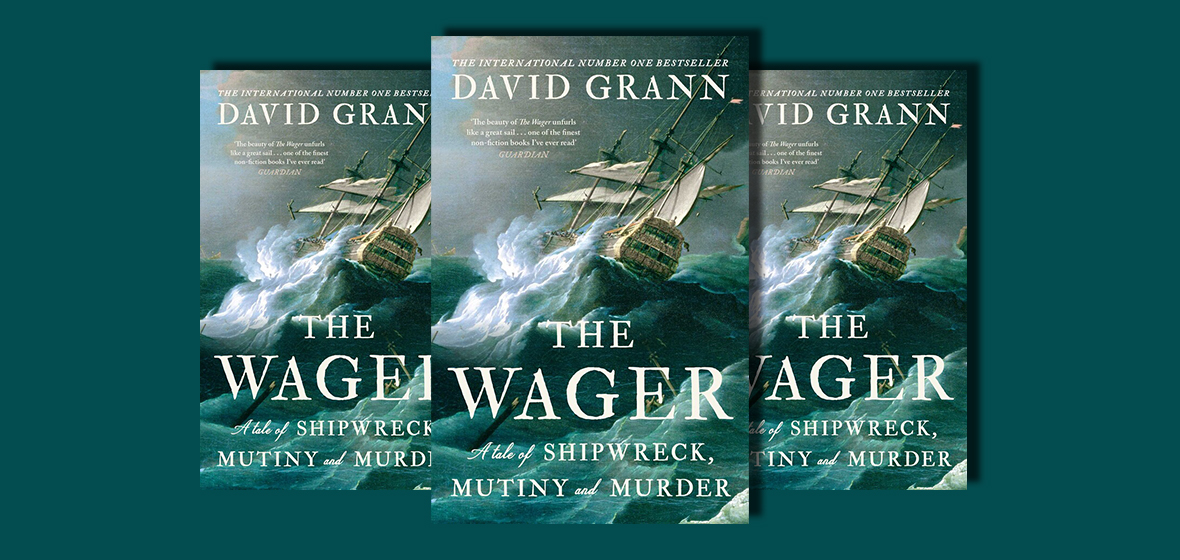David Grann, bestselling author of Killers of the Flower Moon, The Lost City of Z and The Devil & Sherlock Holmes, has launched a new novel that just might take its place as the flagship of his impressive literary fleet.
Set in the mid-eighteenth century, The Wager tells the true story of a British warship that ran aground on an island somewhere off the coast of Patagonia, and the cascade of harrowing ordeals her crew endured in order to survive.
With the ambitious and methodical Captain David Cheap at the helm, The Wager set sail during the amusingly named War of Jenkins’ Ear between Britain and Spain. Like many conflicts, its stirring nationalist premise gave way to more commercial interests, and it soon became a naval struggle over the trading routes that allowed passage into the lucrative markets of the Americas.
The ship was part of a squadron commanded by the greatly admired Admiral George Anson. Anson, a capable navigator and accomplished naval reformer, had a brazen top-secret mission: to sneak down around Cape Horn and capture a Spanish galleon said to be carrying untold riches that had been pilfered from people and places across the new world.
Alas, it was not all smooth sailing for Cheap, Anson and the countless other unfortunate souls who embarked (or were forced by press gangs to embark) on this doomed expedition.
Luckily for us, author Grann has mined a trove of contemporary sources, including captain’s logs and court records, to turn this mostly forgotten maritime misadventure into a newly thrilling saga of hubris, nemesis and treachery on the high seas.
Unlike in Killers of the Flower Moon, Grann’s previous tale about how the Indigenous Osage people of 1920s Oklahoma were coldly annihilated by human hunters, the characters aboard The Wager are terrorised by natural forces – the wind, the rain and the sea itself. And if that were not nearly enough peril, the hapless crew were also stalked by the sinister foes of typhus, scurvy, and starvation at every sodden turn. Grann’s detailed accounts of the havoc these diseases wreaked on minds and bodies, plus the dreadful toll of unrelenting despair and hunger on the humanity of the sufferers, are horrifying to imagine.
And yes, for those hoping for a little swashbuckling amongst the misery and mutiny, Grann’s riveting depiction of a ferocious battle between the two great naval powers of their day is as glorious as it is gruesome.
But the climax of the novel is a final court martial, where differing accounts from the survivors of the ordeal are presented for an official reckoning process. It is the way the crew’s traumatic experiences at sea crash up against the cynical realities of life on land in a colonial empire that is most horrible and revealing of all.




